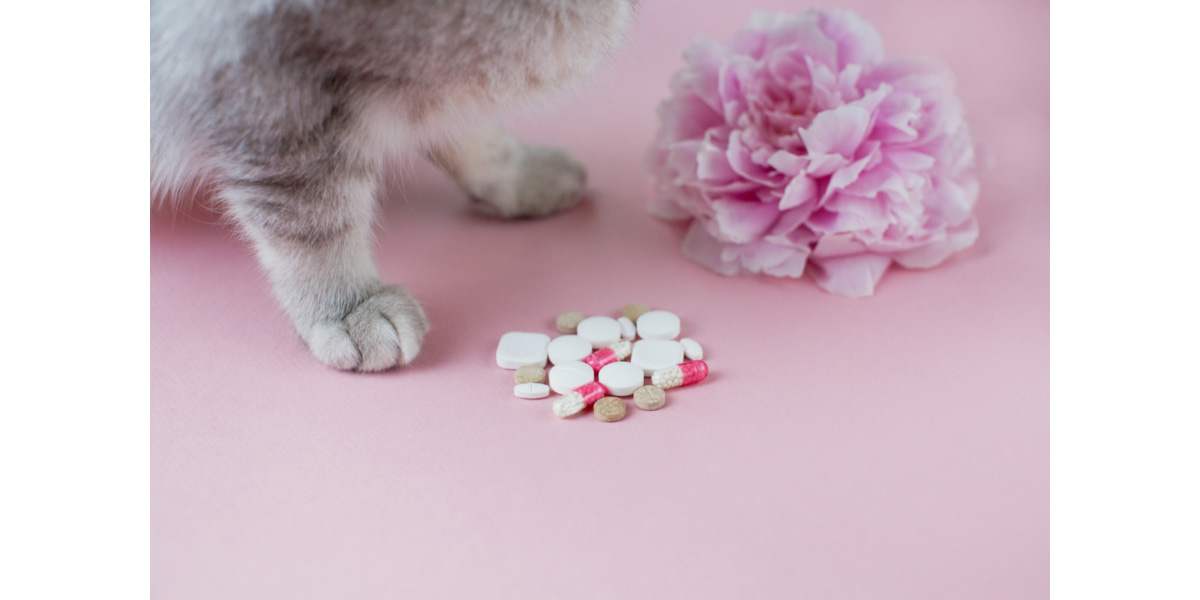Allergy (Atopy) Treatment Options for Cats
Doctor of Veterinary Medicine

While efforts are made to answer all questions as quickly as possible, if an immediate answer is required or if your pet is in need of urgent or emergency care, contact your pet's veterinarian immediately.
Doctor of Veterinary Medicine

You will receive an answer from Dr. Lindsay and our vet/tech team as soon as possible, usually the same day.
All answers are provided for informational or educational purposes only, and are intended to be a supplement to, and not a substitute for, the expertise and professional judgment of your pet's veterinarian.
It may be necessary to consult your pet's veterinarian regarding the applicability of any opinions or recommendations with respect to your pet's symptoms or medical condition.
CloseDoctor of Veterinary Medicine

An error has occurred, please reload the page and try again.
CloseWhile efforts are made to answer all questions as quickly as possible, if an immediate answer is required or if your pet is in need of urgent or emergency care, contact your pet's veterinarian immediately.
There is no answer related to your question

Atopy (allergic dermatitis) is a clinical syndrome seen in cats. It involves your cat's hypersensitive reaction to inhaled allergens or to allergens absorbed through the skin. Feline allergies (atopy) is believed to be a genetically abnormal reaction to normal things in the environment. Common allergens include pollens, trees, grasses, dander, mold, dust mites, animal dander, and any other chemicals in the environment. Symptoms of atopy in cats include:
- Intense, chronic itching
- Scratching, licking, biting, and chewing
- Lesions
- Ulcers
- Hair loss
- Ear infections
- Respiratory disease
While lesions can occur anywhere on your cat, they most commonly appear on your cat's face, ears, feet, and abdomen. Hair loss, as well as the development of raised plaques (lesions), granulomas (inflammation), and ulcers may occur. Some cats develop chronic ear infections and many cats also suffer from respiratory tract disease with coughing. While atopy initially tends to occur seasonally, as cats get older the symptoms tend to occur year round. There is no precise diagnostic test for feline atopy, although some dermatologists have done skin testing to confirm the diagnosis. Diagnosis is typically based on the type of clinical signs, history, and response to steroids.
Cyclosporine
A drug that suppresses your cat's inflammation and reduces the immune response, Cyclosporine (Modified) Generic To Atopica has been used in cats with allergies (atopy). Atopica For Cats also contains cyclosporine. While cyclosporine has less side effects than steroids, it does have its own risks when used long term, including the developing of gum overgrowth in the mouth, tumors, and a suppressed immune system prone to secondary viral and/or bacterial infections. While some veterinarians use cyclosporine as an alternative to steroids, there are still concerns about some of the other possible long-term effects on your cat's immune system.
Steroids
Steroids have long been the cornerstone of treatment for cats with atopy and other skin disorders. Long-acting Depomedrol is especially popular, as a single injection can often rapidly provide several weeks of symptom relief. These steroids reduce both inflammation and the immune response. When used long term, however, there is increased risk of secondary infections and diabetes. Steroids should only be used for a few months at a time; after that period, it is best to wean cats on to oral antihistamines and Omega 3 fatty acids as alternatives.
Hyposensitization
With hyposensitization, an attempt is made to minimize your cat's exposure to allergens. These allergens are first identified by intradermal skin testing, after which allergy vaccines are developed to lessen your cat's immune response to the offending allergens. However, results of intradermal skin testing in cats is controversial, so hyposensitization for atopic cats is not always recommended.
While feline atopy cannot be cured, it can be controlled with medication, diet, and lifestyle management. Although steroids are commonly prescribed, allergies in many cats can also be controlled with antihistamines and Fish Oils & Omega 3.
 Swipe
Swipe
































